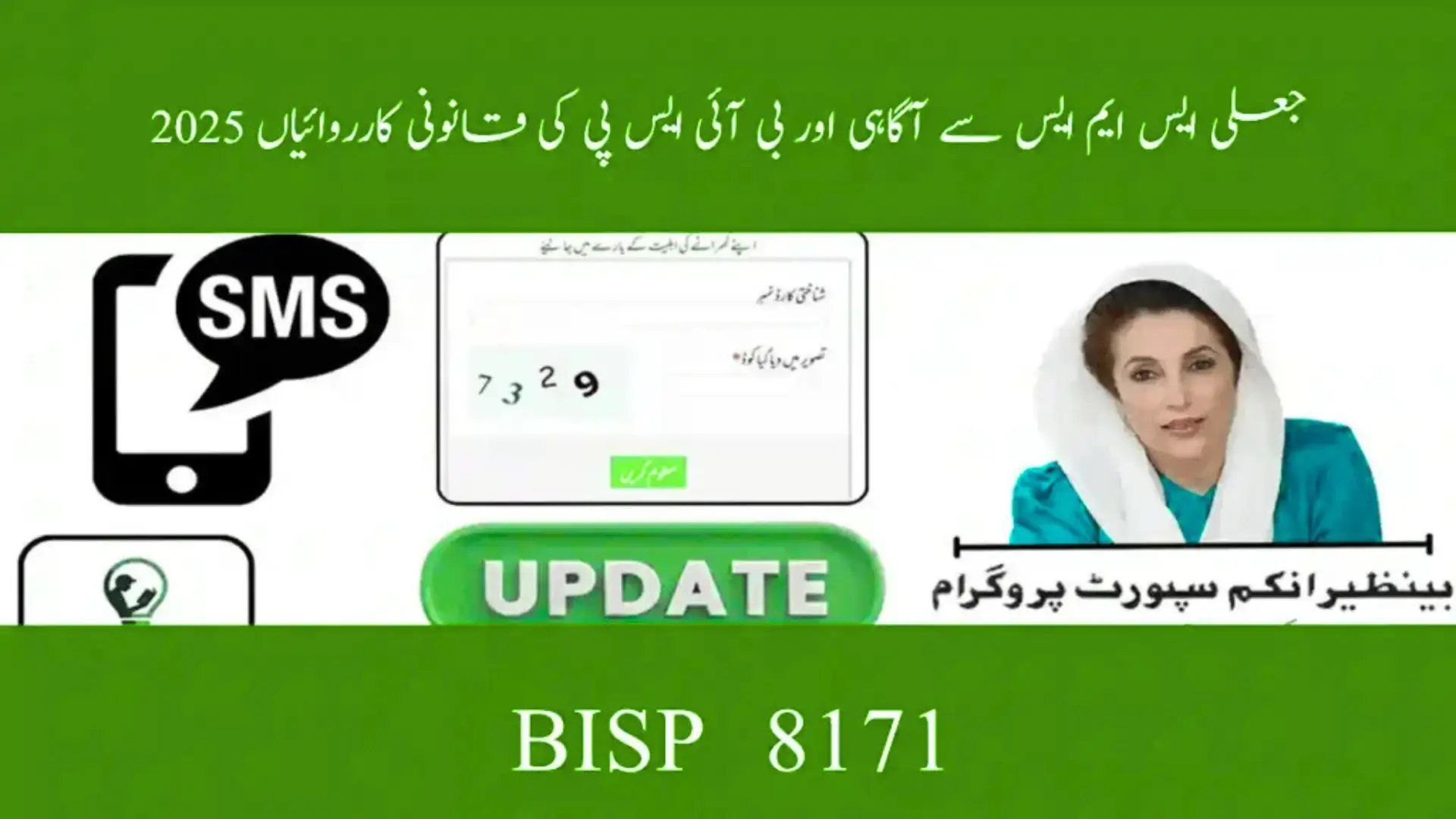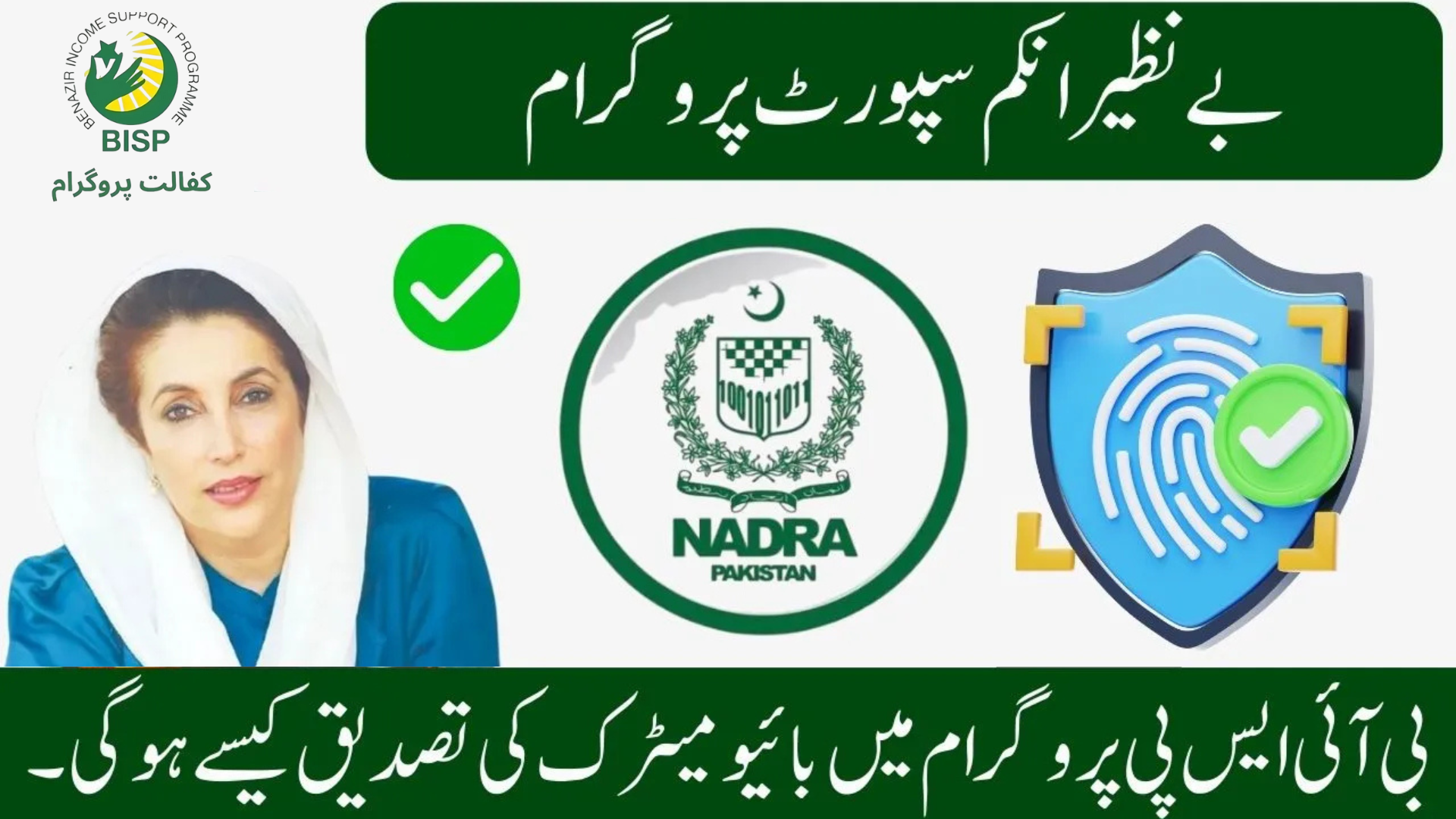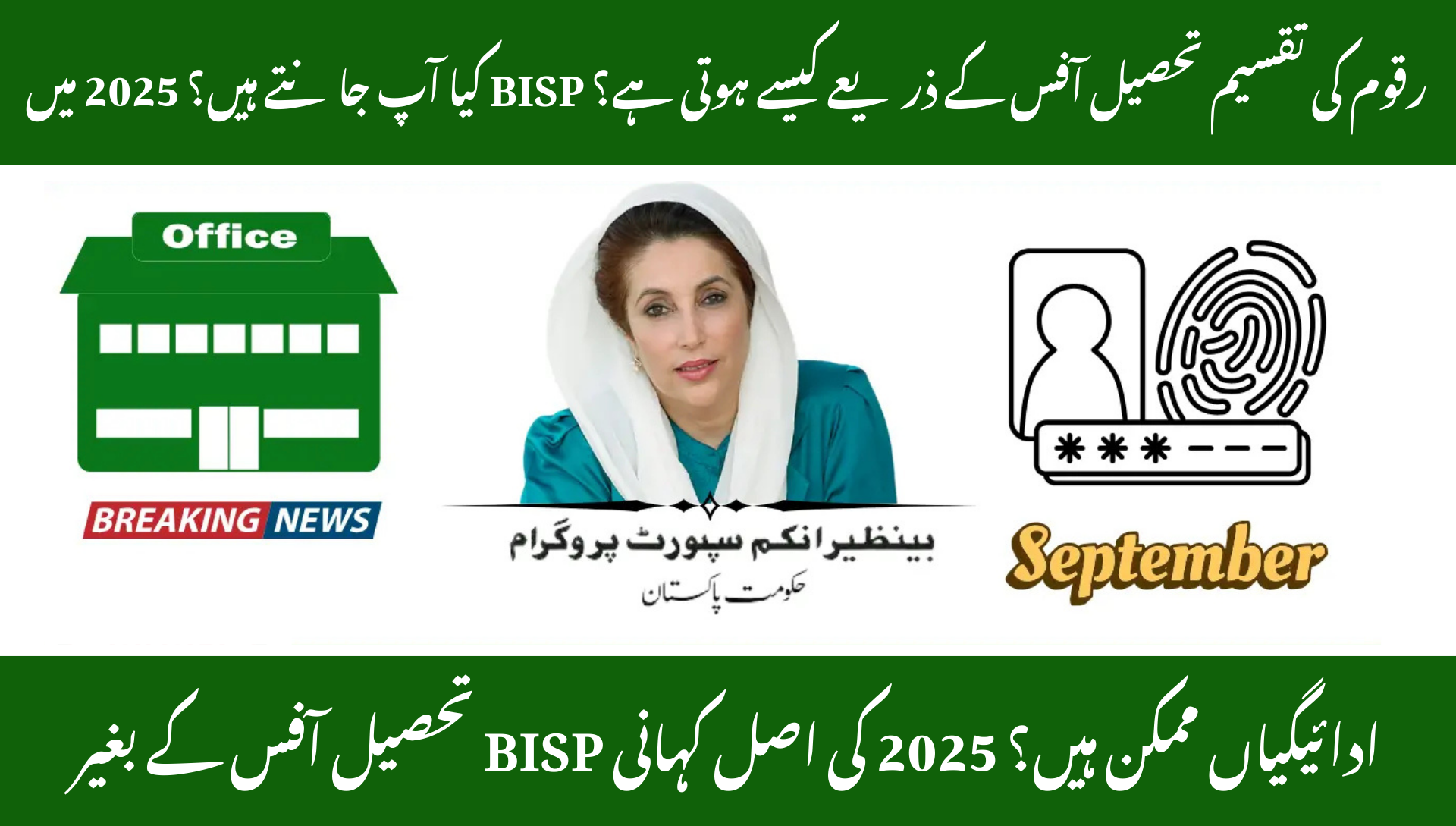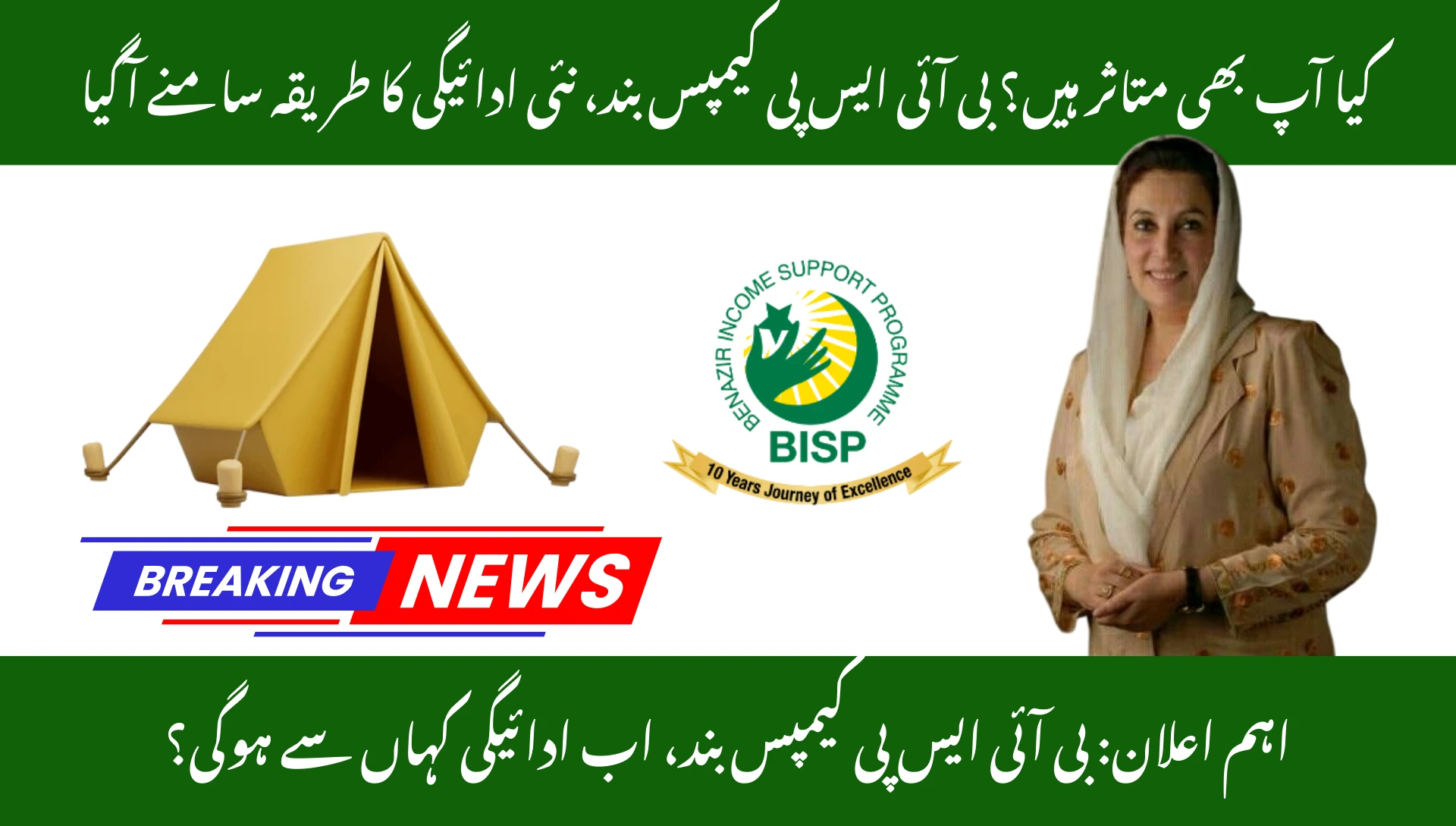The Benazir Income Support Programme (BISP) has been a lifeline for millions of low-income families in Pakistan. It provides crucial financial help so families can buy food, educate children, and cover daily needs. However, as the program expanded, fraudsters also became active, using fake SMS messages to deceive innocent beneficiaries.
To fight back, BISP, along with FIA, PTCL, and telecom companies, has launched strong countermeasures. This article explains how these scams work, what actions the government is taking, and how beneficiaries can protect themselves.
Understanding Fraudulent SMS Scams
Fake SMS scams are designed to appear official and create panic or excitement. Scammers target poor communities who rely on government support and may not be familiar with digital threats.
Common Tactics Used in Fraudulent SMS Messages
False Promises: Messages falsely claim that beneficiaries have received new financial aid or bonuses. Personal Data Requests: Scammers ask for CNIC numbers, SIM PINs, or banking details. Urgent Warnings: They pressure victims by saying payments will stop unless information is shared immediately. Fake Links: Fraudulent URLs mimic the official BISP portal. Impersonation: Scammers pretend to be BISP officers or helpline representatives. These tactics exploit both hope and fear, tricking people into revealing personal information.
Real-Life Victims of BISP Scams
These frauds have caused serious losses and emotional distress: Shazia (Sindh): A mother of three shared her CNIC after receiving a fake message promising emergency funds. Fraudsters drained her mobile wallet. Rashid (Punjab): A laborer clicked a fake link that looked like the BISP website. After entering his CNIC and SIM PIN, his identity was used for illegal SIM registrations. Villagers in Khyber Pakhtunkhwa: Families received SMS from fake “helplines” demanding processing fees. Many lost their limited savings. These stories show that such scams not only steal money but also destroy trust in social welfare systems.
BISP’s Strong Response to Fraudulent Activity
BISP has implemented a multi-layered plan to stop fake SMS scams and protect its beneficiaries.
1. Public Awareness Campaigns
BISP spreads its message through TV, radio, newspapers, and social media. It reminds everyone that: BISP never asks for CNIC, banking details, or PIN via SMS. Only official helplines or offices should be trusted for updates. Any message asking for money or fees is fake. These repeated warnings ensure that even remote and rural populations stay informed.
2. Partnership with FIA (Federal Investigation Agency)
The FIA plays a major role in tracking and prosecuting cybercriminals: Registers official cybercrime cases. Arrests fraudsters under the Prevention of Electronic Crimes Act (PECA). Operates helplines for reporting suspicious numbers or messages.
3. Role of Telecom Operators and PTCL
Telecom companies assist in reducing scam activity by: Blocking SIM cards and numbers linked to fake messages. Filtering SMS traffic to detect scams early. Sharing investigation data with FIA. Tracking suspicious activity through international networks.
4. Community Engagement
Local communities are key to BISP’s awareness strategy: Beneficiaries are trained to recognize and report fake SMS. Awareness sessions are held in villages with low digital literacy. BISP field officers share educational material and help victims report scams.
Legal Actions Against BISP-Related Fraud
Fraud against beneficiaries is a serious criminal offense under Pakistani law. BISP and FIA ensure strict punishment through:
| Offense | Legal Consequence |
|---|---|
| Cybercrime (Fake SMS or Links) | Punishable under PECA Act |
| Running Fraud Networks | Arrest and imprisonment |
| Use of Fraud Equipment (SIMs, Phones, Laptops) | Confiscation and seizure |
| Impersonating a Government Officer | Heavy fines and jail time |
| These actions send a clear message: any attempt to exploit BISP beneficiaries will lead to prosecution. |
How Beneficiaries Can Protect Themselves
While government bodies take action, personal awareness is the first line of defense.
Safety Tips for BISP Beneficiaries
Never share CNIC, PIN, or bank details over text or phone. Avoid clicking on suspicious links in messages. Always verify your payment status through official BISP offices or helplines. Report fake numbers to the FIA Cybercrime Wing or your nearest BISP office. Educate your family members—especially the elderly—about fake SMS scams. These simple precautions can save families from significant loss.
Why Awareness Is the Best Defense
Awareness is the strongest protection against fraud. When people know how to identify fake messages, scams fail. Educated communities can: Instantly recognize fake or suspicious messages. Refuse to share personal information. Warn others and stop scams from spreading. That’s why BISP continues to invest in widespread educational campaigns across Pakistan.
Digital Literacy – The Long-Term Solution
To ensure lasting safety, BISP promotes digital literacy in rural and low-income areas.
Future Plans Include:
Free training sessions on identifying authentic online sources. Community workshops teaching mobile wallet and SMS safety. School programs to help youth educate their families. By improving digital awareness, Pakistan can stop fraud before it starts, and empower citizens to protect themselves online.
FAQs About BISP 2025 Fraudulent SMS Alerts and Legal Countermeasures
Q1. Does BISP ever ask for CNIC or banking details through SMS?
No. BISP never asks for personal or financial information via text message.
Q2. How can I verify if a message about BISP is real?
Only trust updates from official BISP numbers, verified social media pages, or nearby BISP offices.
Q3. What should I do if I receive a suspicious message?
Do not respond. Report the number to FIA Cybercrime or BISP helpline immediately.
Q4. Can scammers be punished by law?
Yes. Under Pakistan’s cybercrime laws, they can be fined, jailed, and have their devices seized.
Q5. How can I help protect others in my community?
Share verified information, help elders identify fake messages, and spread awareness locally.
Conclusion
Fake SMS scams target the poorest citizens who depend on BISP for survival. These crimes are not only about money, they attack the dignity and trust of struggling families. But Pakistan’s defense is getting stronger. With BISP, FIA, PTCL, and telecom partners working together, scam networks are being dismantled, fraudulent SIMs blocked, and cybercriminals punished. Every citizen must also play a part. Stay alert, protect your personal data, and never trust unverified SMS messages. Only believe official BISP sources, protect yourself, your family, and your community.


















